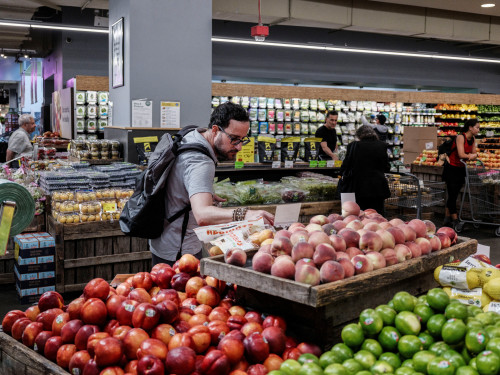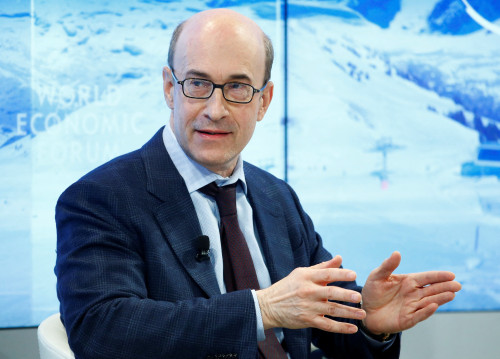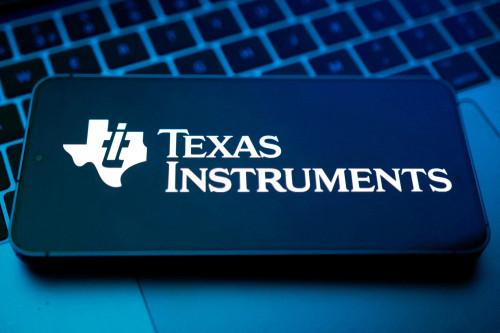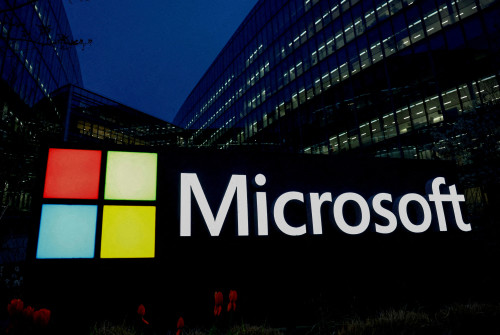By Jason Lange and James Oliphant
WASHINGTON (Reuters) -Americans are worried about the cost of basic needs including healthcare, food, housing and energy, a Reuters/Ipsos poll found, suggesting those concerns could be critical in next year’s midterm elections that will determine control of the U.S. Congress.
Affordability worries helped power Republican President Donald Trump’s 2024 election. But 10 months into his second term, voters have continued to face high prices for everyday staples – and are looking for relief.
Some 40% of respondents in the six-day poll, which closed on Monday, said candidates’ positions on the cost-of-living would be the single biggest factor in their vote next year, compared to 28% who said the top issue would be protecting democracy and democratic norms. Another 14% said immigration was the biggest issue and 9% said crime.
“Cost-of-living seems to be on the minds of the public, regardless of partisan stripe,” said John Geer, a public opinion expert at Vanderbilt University who reviewed the poll.
Democratic candidates in high-profile races this year in New Jersey, Virginia and New York City are zeroing in on affordability concerns ahead of the November 4 election. If they prevail, it may provide the party with a blueprint for next year, although analysts routinely urge against drawing conclusions about national elections from these contests.
Control of the U.S. House of Representatives, where Republicans currently hold a 219-213 majority, will be up for grabs in next year’s midterm election, and the president’s party typically loses seats in a midterm year. There will also be elections for 33 of the 100 U.S. Senate seats, though nonpartisan analysts favor Republicans’ chances of defending their slim majority in that chamber.
Cost-of-living was also top of mind for 44% of independent voters, who play a decisive role in U.S. elections.
“Their top priority is the cost-of-living and by a lot,” Geer said. Independents’ second priority was protecting democratic norms, which 22% cited as their top worry.
HEALTHCARE THE TOP COST WORRY
The poll showed that healthcare is the everyday expense Americans want members of Congress to address. Some 31% said lawmakers need to prioritize healthcare costs, compared to 22% who said housing and another 22% who said food.
Congress is locked in a fight over funding that has resulted in the second-longest government shutdown in U.S. history. Senate Democrats have blocked measures to fund operations, demanding that Republicans agree to extend tax credits under the Affordable Care Act and other healthcare fixes.
KFF, a nonpartisan health policy research, polling and news organization, has projected that failure to extend the credits will result in premiums doubling for the vast majority of the 24 million Americans who utilize insurance exchanges. The group also estimated that costs for workers with employer-based healthcare rose 6% this year and predicted a steeper increase next year.
KFF CEO Drew Altman said that Americans consider healthcare costs in the context of their household budget, not as a separate issue. He said Democrats hold a natural advantage on the subject with voters and may look to exploit that even if the Affordable Care Act fight is resolved.
Some 39% of poll respondents favored the Democratic Party’s approach to healthcare, compared to 26% who favored Republicans.
As for Republicans next year? “They’ll want to change the subject,” Altman said.
But Matt Gorman, a Republican strategist and former top aide at the National Republican Campaign Committee, which focuses on House elections, said Democrats’ advantage on healthcare could be negated by the greater trust voters have in Republicans’ overall handling of the economy.
The poll found that 36% of the country trusts them more on the issue, while 29% say Democrats have a better approach.
“Voters are still feeling squeezed by the cost-of-living. Republicans still have the edge there,” Gorman said.
DEMOCRATIC PROPOSALS
The poll found broad levels of support for a core cost-of-living proposal by Democratic candidates in next month’s elections: Raising the minimum wage. Some 68% of people polled – including nine in 10 Democrats and half of Republicans – backed minimum wage hikes.
This year’s top Democratic candidates have made affordability a central tenet of their campaigns.
Abigail Spanberger, the Democratic candidate in the Virginia gubernatorial race, has campaigned on raising the minimum wage, as has Zohran Mamdani, the Democratic candidate for New York City mayor. Mikie Sherrill, the Democratic nominee for governor of New Jersey, has an “affordability agenda.”
Some conservative positions put forward by Republicans this year also get strong support nationwide, the Reuters/Ipsos poll found.
Some 75% of Americans – and 73% of independents – said they support requiring photo identification when people cast ballots in elections, a position pushed by Jack Ciattarelli, the Republican candidate in the New Jersey governor’s race, and a Trump priority.
Ciattarelli has also pledged to cap property taxes in the state, another popular conservative approach aimed at controlling housing costs. Some 76% of poll respondents overall, and a similar share of independents, said they support capping increases in property taxes for owner-occupied homes.
(Reporting by Jason Lange and James Oliphant, additional reporting by Nolan D. McCaskill; Editing by Scott Malone and Cynthia Osterman)






